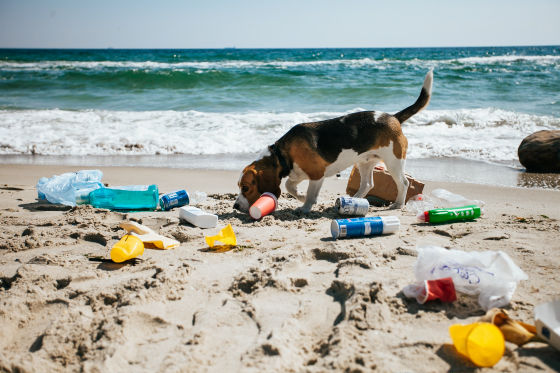Reports that microorganisms around the world are evolving to break down plastics

Marine pollution from plastics
Plastic-Degrading Potential across the Global Microbiome Correlates with Recent Pollution Trends | mBio
https://journals.asm.org/doi/10.1128/mBio.02155-21
Bugs across globe are evolving to eat plastic, study finds | Plastics | The Guardian
https://www.theguardian.com/environment/2021/dec/14/bugs-across-globe-are-evolving-to-eat-plastic-study-finds
This research was conducted by a research team led by Professor Aleksej Zelezniak, who studies systems biology at Chalmers University of Technology in Sweden. The research team first compiled data on 95 species of 'plastic-degrading bacteria' that have been confirmed to exist in garbage dumps, and then searched for the presence of bacteria with similar DNA samples. .. Samples were collected from a total of 236 locations, including 67 marine regions with different water depths and 169 soils in 11 regions in 38 countries around the world.
As a result, the research team discovered about 12,000 new plastic-degrading enzymes from 67 ocean samples and about 18,000 new plastic-degrading enzymes from 169 soil samples. The research team explained why more enzymes were found in the soil than in the ocean, 'because the soil contains more phthalates, which are used more often as plasticizers for polyvinyl chloride than in the ocean. There are many targeted enzymes. ' Also, nearly 60% of the new enzymes did not fit into known classifications, suggesting that these enzymes decompose plastics in ways that are not yet known to humans.

'Plastic-eating bacteria' were first discovered in 2016. Since then, researchers around the world have been investigating how bacteria decompose plastics and attempting to use that mechanism to recycle plastics. The findings of Professor Zelezniak's research team could accelerate the study of plastic degradation by bacteria, and Professor Zelezniak said, 'The next step is to test promising enzyme candidates in the laboratory and their properties and plastics. It's about scrutinizing the rate of degradation, from which we believe we can create a group of bacteria that can degrade a particular polymer. '
Related Posts:







